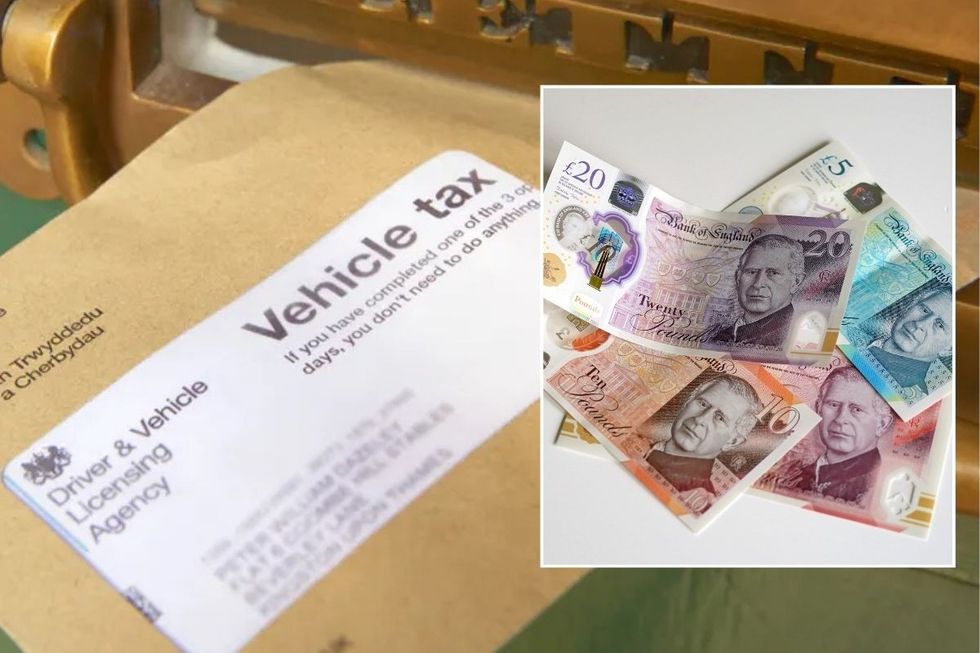WATCH: Rachel Reeves unveils new electric vehicle tax changes
GB NEWS
Former Chancellor Jeremy Hunt announced that electric vehicles would have to start paying tax in the 2022 Autumn Statement
Don't Miss
Most Read
Trending on GB News
Motorists around the country are being urged to make use of a year of free tax ahead of massive changes being introduced in the coming weeks.
The latest Money Saving Expert newsletter from Martin Lewis called on drivers to make use of an "electric vehicle tax trick".
It was previously announced that electric vehicle owners would have to start paying Vehicle Excise Duty (VED) from April 2025 in a bid to make the system of tax fairer for all drivers.
In recent years, the tax exemption has been one of the biggest selling points for electric cars as motorists around the UK look to make use of tax breaks and incentives to transition away from petrol and diesel.
Do you have a story you'd like to share? Get in touch by emailingmotoring@gbnews.uk

New Vehicle Excise Duty (VED) will be unveiled on April 1
GETTY/PA
The MSE newsletter has urged drivers to re-tax their electric car in March if it was first registered on or after April 1, 2017.
It states that it can be done anytime before April 1, 2025, but March would be the best time to do it so they can maximise their savings.
This will push back the deadline for paying tax on their electric car when it is due for renewal in March 2026, if they renew in March 2025.
Motorists have been told that it doesn't matter what month the electric vehicle tax expires, as they can re-tax it anytime using the car's registration number and reference number on their V5C vehicle logbook.
From the new financial year in April, EV drivers will begin to pay tax. If this is before March 31, 2017, they will pay £20 a year, based on current 2025/26 rates.
If a vehicle was registered between April 1, 2017 and March 31, 2025, they will pay £195 a year. Any vehicles registered after the deadline to pay tax will be charged £10 in the first year, before rising to £195 after that.
Many electric vehicles could also be hit with extra charges if they cost more than £40,000, with drivers liable to pay the Expensive Car Supplement (ECS).
This will set drivers back £410 a year which they will pay from the second year the vehicle is taxed until the sixth year.
Chancellor Rachel Reeves announced in the Autumn Statement that the Government would "widen the differentials" between electric vehicles and internal combustion engine cars going forward.
As part of this, owners of the most polluting petrol and diesel vehicles could see their prices double, potentially costing them hundreds or even thousands of pounds per year after buying a new vehicle.
The first year rate for cars emitting more than 76g of CO2 per kilometre will double for 2025-26. This could result in people buying the most polluting vehicles facing a £5,490 charge.
Labour will also uprate the standard rate of VED for cars, vans and motorcycles in line with the Retail Price Index (RPI) from April 1, 2025.
LATEST DEVELOPMENTS:

Martin Lewis' MSE newsletter called on drivers to make use of the tax tip
PAThe Budget also outlined that the Government recognised the "disproportionate impact" of the Expensive Car Supplement for those buying new zero emission vehicles.
Despite this, Labour only committed to consider raising the threshold for zero emission cars "only at a future fiscal event" to make it easier for Britons to buy EVs.








